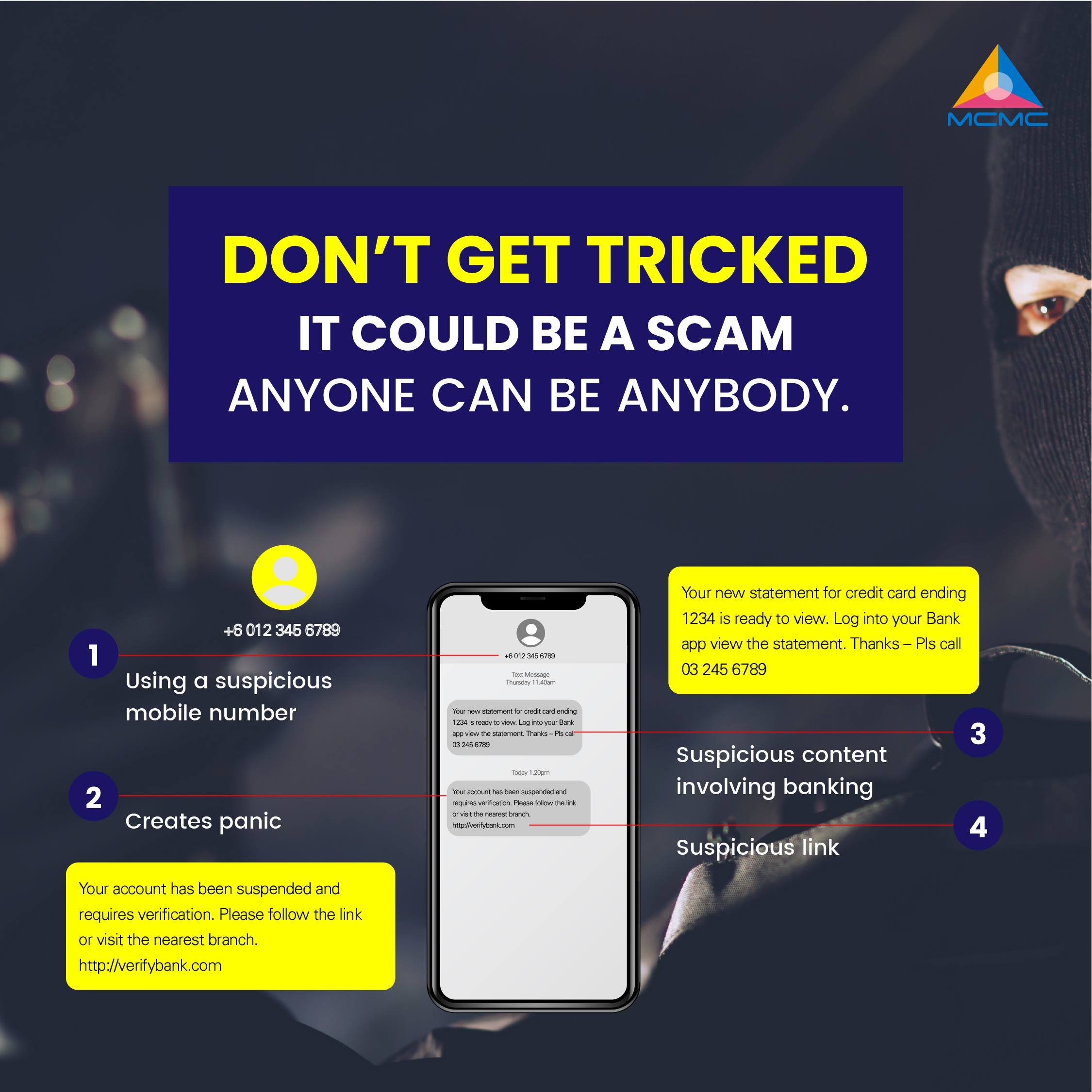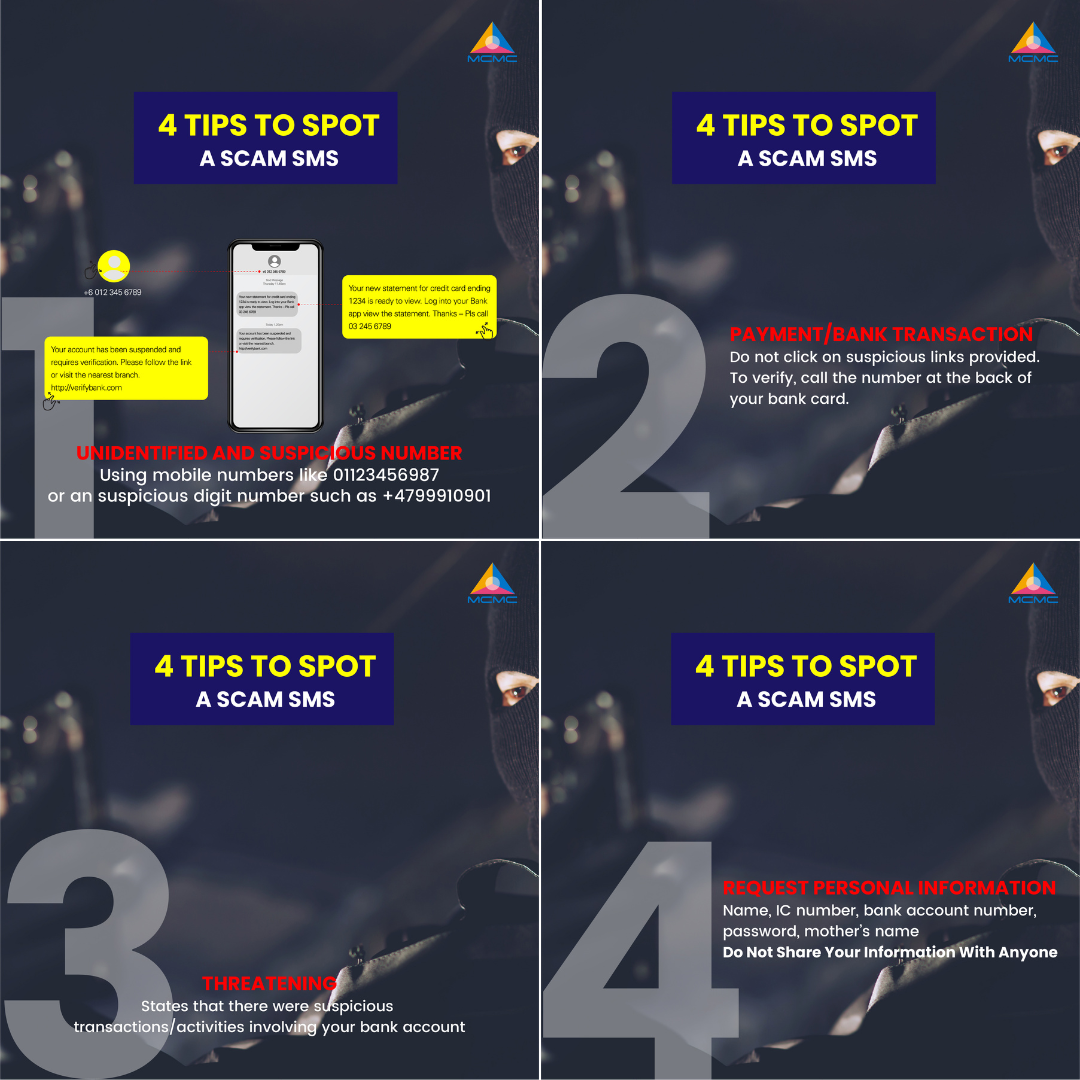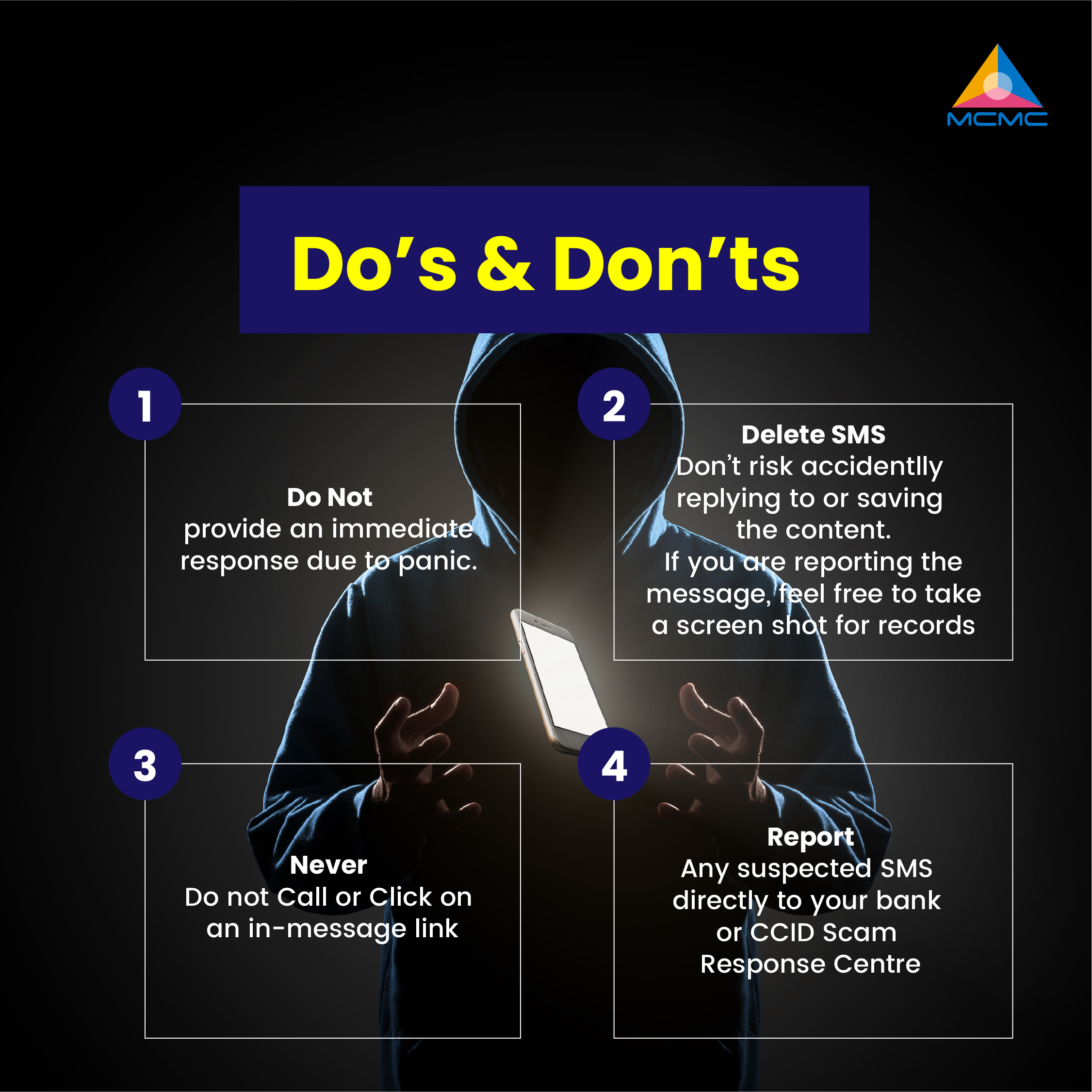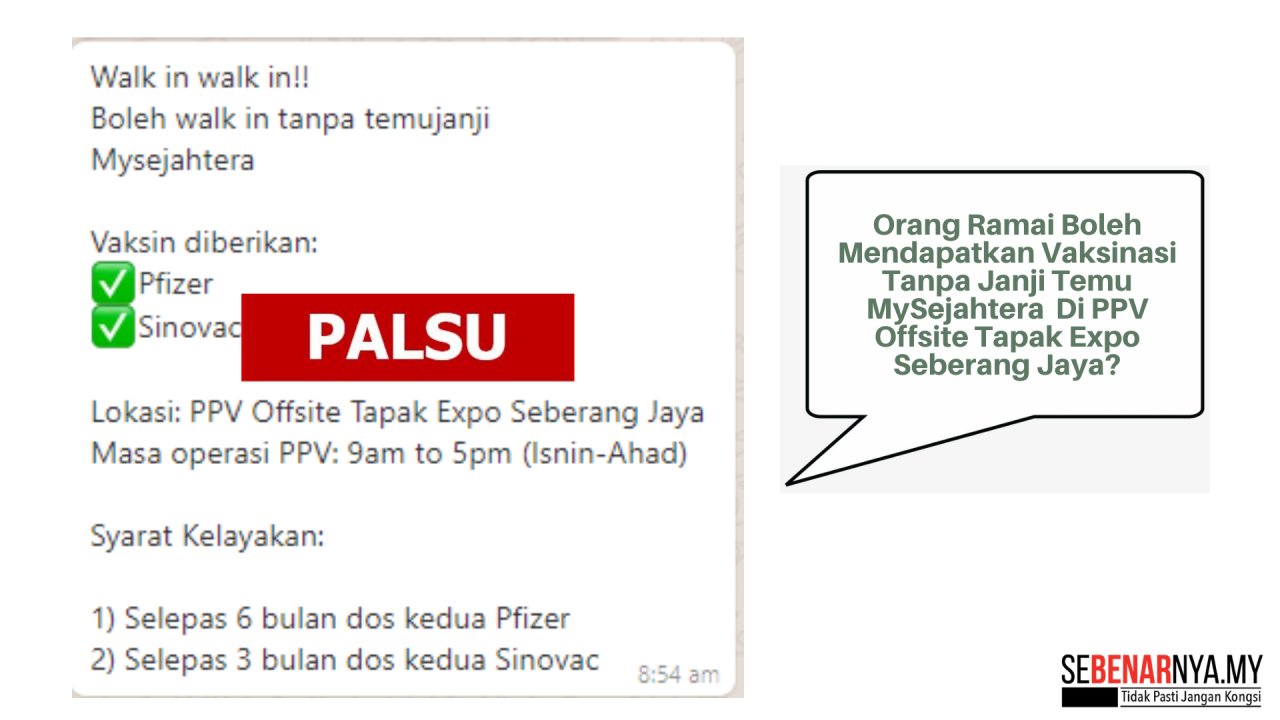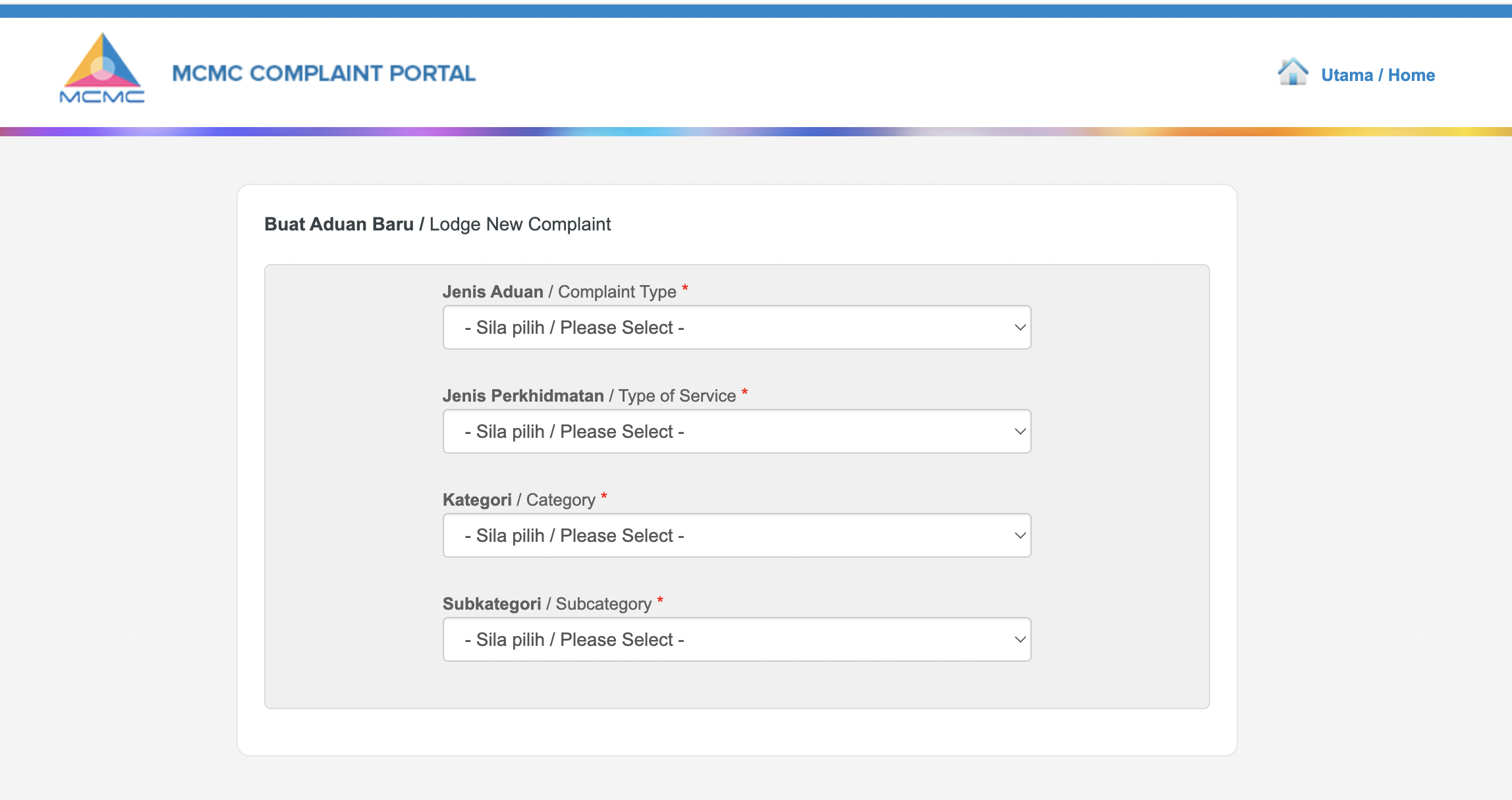"Authorities Will Never Call You" — Here's How To Avoid Being Tricked By Scams & Fake News
Follow these tips the next time you receive suspicious calls and text messages, or encounter misleading information.
With the rise of scams and fake news in the country, Malaysians are strongly advised to take these issues seriously, to prevent the situation from getting out of hand
From the infamous Macau scam to misinformation regarding COVID-19 causing fear and panic, it is important for us to stay educated on the ways to prevent ourselves from falling victim to these crimes.
Luckily for us, MCMC has provided useful tips to help Malaysians spot the early warning signs of scams and detect fake news.
Check them out below:
1. One of the most important things to remember about scam calls is that authorities will never contact you via telephone
Based on this, we can determine that calls claiming to be from agencies such as The Royal Malaysia Police (PDRM), the Malaysian Anti-Corruption Commission (SPRM), the Inland Revenue Office (LHDN), Bank Negara Malaysia, and more are suspicious, and we should not comply with the scammer's instructions.
In a nutshell, you should be cautious when receiving calls claiming to be from official agencies, requesting for payments, making threatening remarks, and asking for your personal information.
Here's what you should do (and not do) when you receive a scam call:
Encik Harme Mohamed, Head of the Network Security Division at MCMC, stated that if you ever receive scam calls, do not proceed further, hang up the phone, and immediately report it to the relevant authorities, such as PDRM and MCMC.
"Reporting the call to the relevant authorities is important, because we (MCMC) can take action towards the phone number used. Scammers will usually change their phone numbers from time to time to avoid being detected, and if we are informed about the numbers, we can prevent it from happening to someone else. So, aside from hanging up, it is important to make a report," he said.
2. Text messages which contain content that is meant to cause panic are most likely scams
For example, the SMS may state that your bank account has been suspended, or that you owe large amounts of money to a certain organisation. That is why you should be wary of SMSes received from unidentified or suspicious-looking numbers.
And, similarly to scam calls, if the SMS asks for payments (via suspicious links), threatens you by stating information related to banking, or requests for personal information, know that these are red flags that indicate you are dealing with a scammer.
Here's what you should do (and not do) when you receive a scam SMS:
More often than not, scam text messages contain links, which you should NEVER click on, as this could allow scammers to hack into your device. You should also not call the number, or reply to the text message either.
While deleting the SMS will prevent you from accidentally clicking any suspicious links or accessing the malicious content, you may want to take a screenshot of the SMS. This is so you can report the SMS scam to your bank or the Commercial Crime Investigation Department (CCID) Scam Response Centre.
3. When it comes to fake news, it is important for us to do research to ensure the information we are presented with is accurate
According to Encik Harme's observations, fake news can be a seasonal issue.
"During the pandemic, there was plenty of fake news regarding COVID-19. And, even during election season, there was misleading information involving politics going around as well. So, there are many categories of fake news, and it is quite seasonal," he said.
By understanding this fact, we can take news stories that seem unbelievable or with outrageous claims on hot topics with a grain of salt.
Plus, it helps to do a bit of digging, from finding out more about the site where the news came from, to the information published in the story. It is not recommended to take the information at face value, as we should ensure that it is verified before trusting it completely.
Sharing fake news with friends and family is a huge no-no. While this is sometimes done unintentionally, said Encik Harme, there are those who wish to cause panic and worry among the public, as well as gain more likes, clicks, and shares when spreading fake news on social media.
While the first step is to lodge a complaint directly to the content owner or moderator, you can also lodge a complaint to MCMC through their portal.
Additionally, Malaysians can check Sebenarnya.my, a one-stop centre for the public to find information about fake news in the country. Through the site, readers will discover news stories that have been proven false by the relevant agencies, and published on Sebenarnya.my for all to see.
"For example, if there is fake news involving the Ministry of Health, they will be asked to provide the actual facts, and based on that, Sebenarnya.my will issue the actual statement on their site. In addition to fact-checking, this portal also includes educational articles on things that people need to know, including scam-related issues. You can find this information and more with this portal," said Encik Harme.
On top of all these tips for the public to follow, MCMC is also doing its part to prevent scams and fake news from becoming rampant
Aside from providing the Sebenarnya.my portal to keep Malaysians up to date on the latest scams and fake news, the regulatory body is also working closely with social media providers such as Facebook, Twitter, and Google. This initiative aims to remove any content that is misleading and may cause panic among Malaysians.
As for scams, MCMC has successfully blocked 1.6 billion scam calls, thanks to a set of 12 guidelines that were created to block scam calls. The organisation is in the midst of creating a new set of guidelines to deal with SMS scams as well.
To find out more about MCMC's initiatives, please visit their website.
You can also view the list of current fake news as well as information pertaining to scams by heading over to Sebenarnya.my.




